Two Signs Your Country Is Authoritarian
Adelina Marini, June 20, 2013
The first sign is control over media. Control can be very difficult to detect with unarmed eye because in peaceful and calm times controlled media behave just like the normal ones. Social networks, however, provide a very good opportunity to look beyond this ostensible normality. When criticisms in social networks become more frequent, the impetuous development of blogs and the so called "citizen journalism" also increase, then for sure there is a problem with mainstream media. Everything becomes pretty clear the moment there is a crisis. Just like in Bulgaria in 2009, in Hungary in 2006 and now in Turkey. In Bulgaria, mainstream media were underestimating the protests against the attempts for construction works in protected natural areas and they provided a crooked view point.
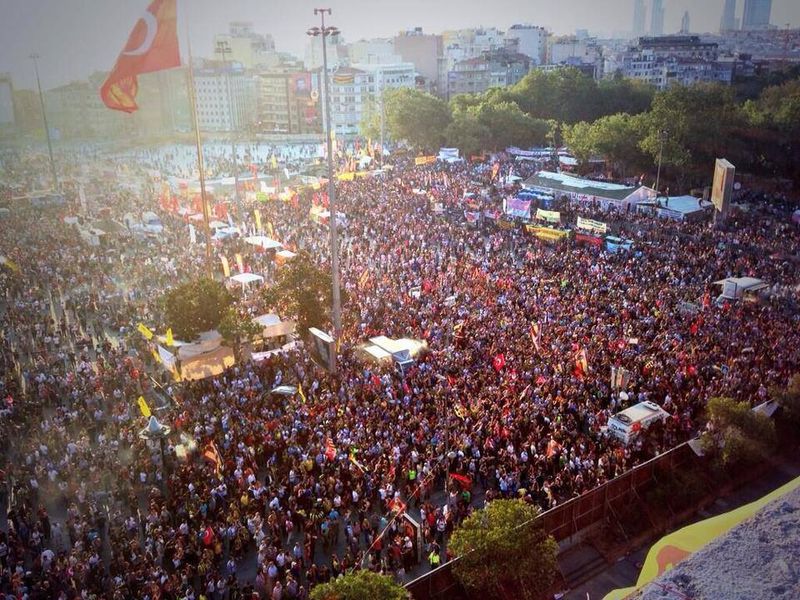
In Turkey, everything started with a peaceful green protest which grew into a huge in scale unrest. But media have continued to show a really crooked picture, implying the protesters are in fact a gang of armed anarchists. What foreign journalists report from Turkey unequivocally shows that the media environment there is entirely under the control of the government and this is not simply to the detriment of democracy. It is a sign that democracy is not there at all. Turkish Prime Minster Recep Tayyip Erdoğan quickly realised that social networks undermine his efforts to handle easily the protesters and that is why he pronounced them dangerous and spreading lies, although he himself (through his team probably) has been using Twitter for quite some time.
Bulgarian journalist in Turkey Nihal Özergan wrote on Facebook recently that in Turkey an unprecedented "media paradox" has been unfolding. About the events on Taksim square and in other revolting cities can be learnt from the correspondents of foreign TV outlets. "Journalists whom until recently we assumed were doyens of Turkish journalism, have tossed the pancake", Nihal writes.
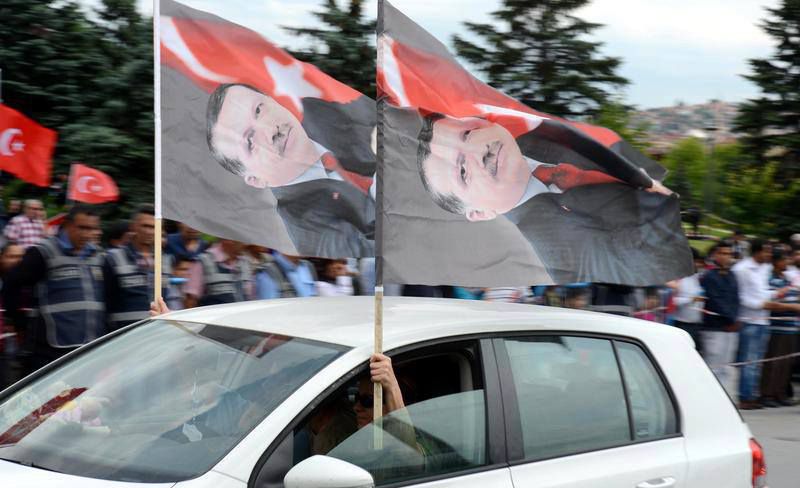
In Bulgaria, the media situation is also highly controlled. In the past years, most media were bought out by a single owner, while the rest have eloped with the strongmen of the day due to the natural need to survive. The citizen journalism and the activities in the social networks have increased. The media crisis escalated to such an extent that the interference of the European Commission was sought in the face of Neelie Kroes, who went to Sofia to meet the discontent, but instead she was welcomed by the biggest participants in the decay of media as a natural ally of society and a corrector of authority (who could have invited them?!). Their participation entirely substituted the purpose of the meeting, during which individual journalists cried for money, if possible from the EU funds, instead of pointing to the real problems of the Bulgarian media environment, ergo of the fragile Bulgarian democracy.
And in Hungary, one of the first tasks of Prime Minister Victor Orban after he came to power was to exercise control over media, masked as a desire to bring order in the area. His big mistake was that he did that on the eve of the first Council presidency of Hungary. This exposed his actions to pan-European attention and inflamed the discontent of MEPs.
The second sign is substitution of protest
In Bulgaria, we have had a number of occasions when among peacefully protesting citizens a group of well organised and instructed ultras, as we call them, is inserted. Usually, those are paid members of the most radical wings of football fans whose main goal is to destroy and throw into unrest. They clash with police thus provoking them to begin responding. However, that response is against everyone. In the Bulgarian case, this leads to dispersing of protesters who already are not many. In Turkey, the government did the same last week and then media were very obliging in showing precisely that episode. Another Bulgarian journalist - Emi Baruh - wrote [in Bulgarian] after her return from Turkey that on Taksim square appeared a well prepared group of people who attacked the police.
Attendees told her that the group was very "odd". The "rebels" wore the same gas masks as the police, the same protective vests and the same boots. They also had radios and were armed with Molotov cocktails. The teams of all Turkish TV stations which had been silent for 12 days about the developments on the squares, were there and were broadcasting live, Emi Baruh says.

Of similar methods of dispersion or vitiation of protests told me a Hungarian colleague on the occasion of the massive protests in Budapest in 2006, provoked by the confession of the then Prime Minister Gyurcsány before a closed party circle (a record of which leaked in media) that he had lied about the country's financial situation. In Bulgaria, too, the first big anti-government protests after those in 1990s - on January 14, 2009 - were vitiated by an implanted group. Participants in the protest then said that a small group appeared among them of no more than 30 young hooded men, who positioned themselves precisely in front of the fences and in the scope of media. Clashes began with the police which led to the end of the protest after a bomb alert was raised.
Something similar, but much more sophisticated, happened earlier this year when a major part of the protesters proved to be figureheads close to the authority. It was them who were invited to negotiate with the government, exactly as Erdogan did last week when he invited selected representatives of the protesters for talks.
Is a totalitarian spring blooming out?
The authority's attempts to suppress the protests against itself in this way are a very telling example of authoritarianism, because they lead to several tragic outcomes: first, they repulse a large part of people who feel betrayed and the protest is an essential element of expressing discontent; the society's agenda is substituted; and last but not least, they crook the election outcome. In this regard, Bulgaria is more then a telling example. The protests on January 14 2009 were against the government of the triple coalition, led by today's leader of the Party of European Socialists (PES), Sergey Stanishev. 4 years later, voters, radiated by the controlled media, voted for the same coalition which the small community of active citizens tried to take down in the winter of 2009.
Not only are they almost the same rulers, but they were elected by only half of the voters. The rest were too disappointed and felt deprived of choice which is why they did not go to the ballot boxes. From here onwards it is not difficult to forecast that the imitation of democracy will continue within the EU. We should not forget what happened in Hungary, too. Currently, in power is right-centrist Victor Orban, accused of authoritarianism, who, however, has been successfully presented by media as simply the strong hand Hungary needs very much in this difficult moment.
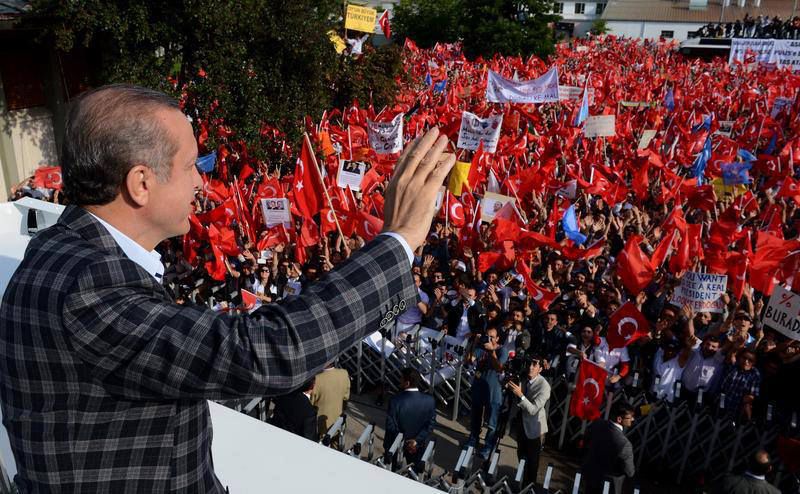
Turkey, seems, is the only country that stands a chance because the well educated and active Turkish citizens, who are fighting for their uncertain democracy, at this stage are not giving up. Another positive thing, as ridiculous as it may sound, is the fact that Turkey is a candidate for EU membership which allows the EU to exert pressure over the government. Regretfully, this leverage looks rather like curved macaroni than a real tool for influence, due to the many mistakes the EU made regarding Turkey. Nonetheless, there is a s significant part of the Turkish citizens who state their will to be part of the EU and their behaviour shows that they have long been part of it. As Ivo Bojkov, a Bulgarian blogger, wrote recently on Facebook, the protesters in Turkey showed that they deserve to be part of the EU, while the Turkish government is still not ready for membership.
Currently, the EU is facing a very difficult situation - to overcome the totalitarian spring that is blooming in its immediate neighbourhood (Turkey, Russia) and in its own courtyard - Bulgaria and Hungary (but also Romania). At this stage, it seems, the battle is led only by and in the European Parliament. The EU should not forget, though, that it is a community of 27 (soon 28) individual states, none of which is insured against the "totalitarian spring", at least because of the ongoing economic crisis which is weakening further and further the democratic links between rulers and ruled.
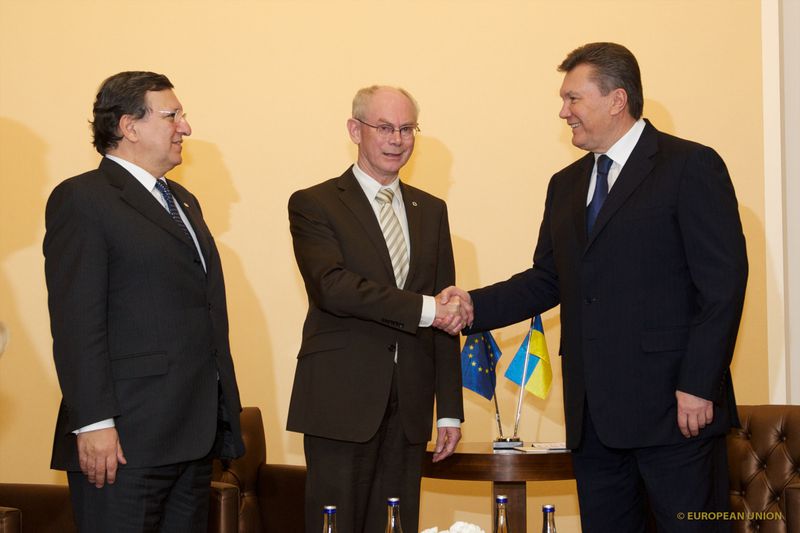 Jose Manuel Barroso, Herman Van Rompuy, Viktor Yanukovych | © Council of the EU
Jose Manuel Barroso, Herman Van Rompuy, Viktor Yanukovych | © Council of the EU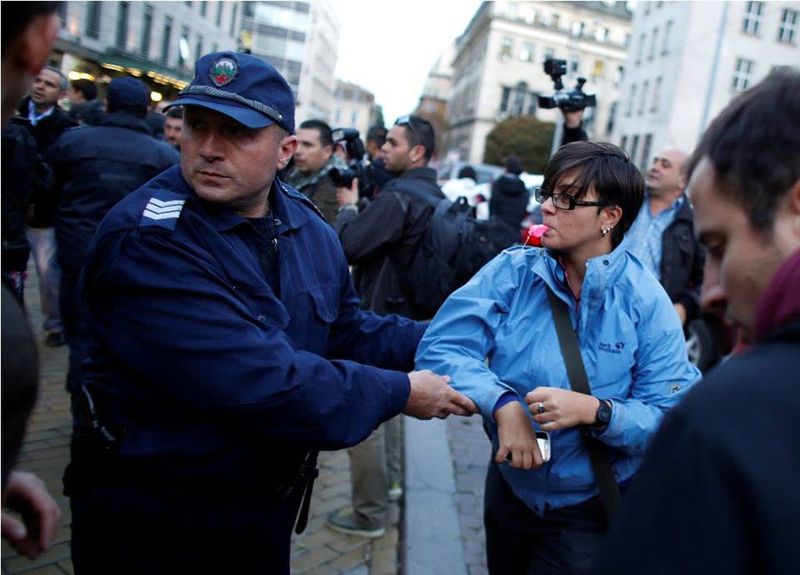 Magdalina Guenova | © Magdalina Guenova
Magdalina Guenova | © Magdalina Guenova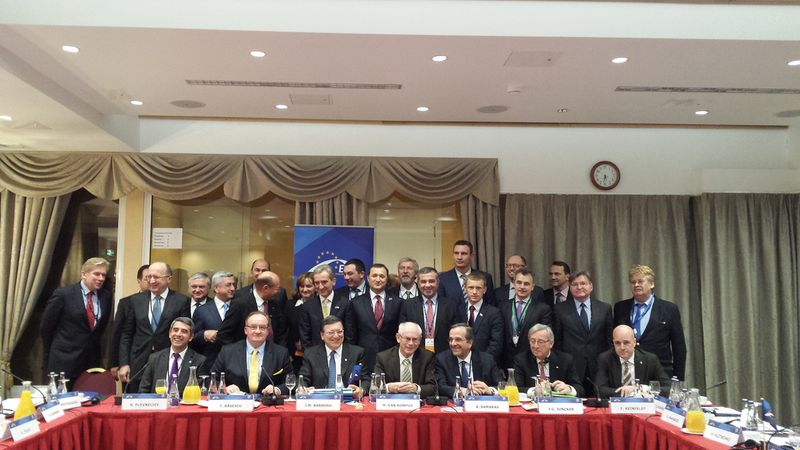 | © EPP
| © EPP